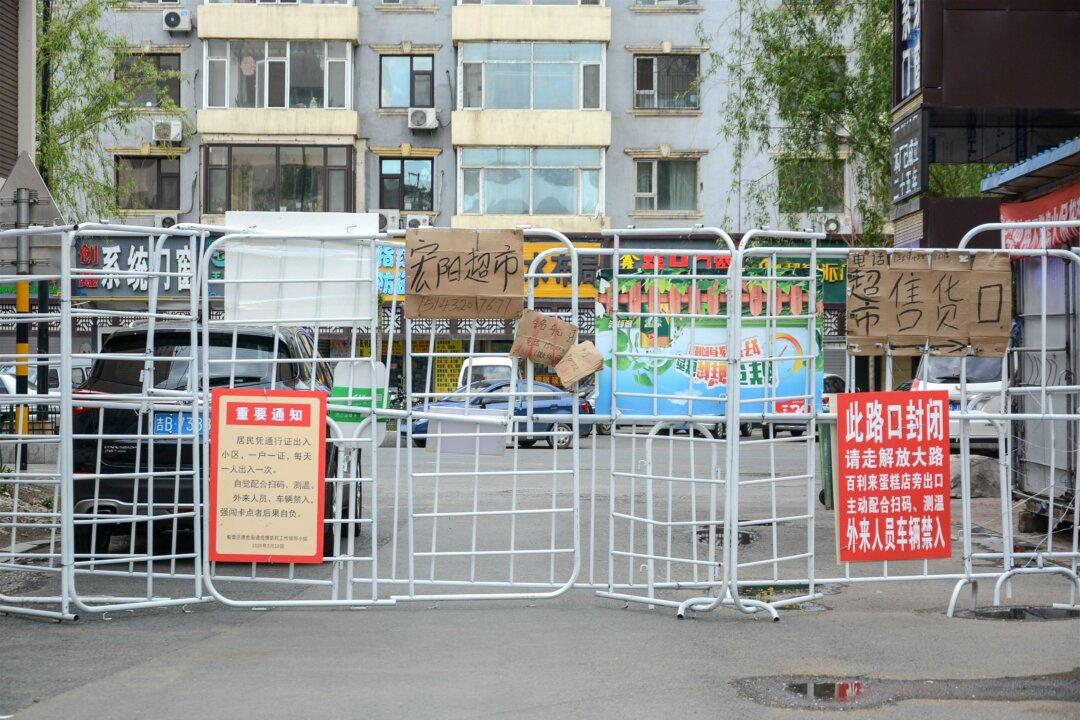China’s recent surge of CCP virus infections has made life difficult for local residents in Tonghua, a city located near the North Korean border in northeastern China’s Jilin Province.
Ms. Liang, a businesswoman in Dongchang district in Tonghua, told the Chinese-language Epoch Times that local authorities began to seal off her community on Jan. 15, nearly a week before the official announcement.



